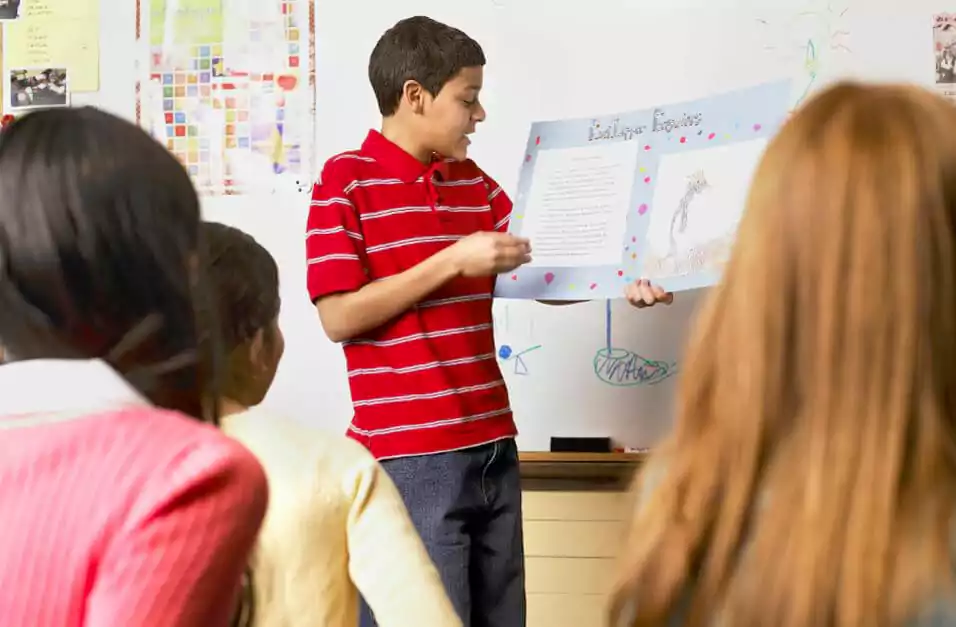How Cell Phone Restrictions Are Boosting Academic Success in the Classroom

Many teachers have commented on how cellphones have impacted student learning in both positive and negative ways. While cellphones can be useful tools for research and collaboration, their constant presence often creates distractions that affect students’ academic success. This has led many schools to implement cell phone restrictions in classrooms, and the results have been overwhelmingly positive.
The Impact of Cellphones on Student Learning
Before delving into the benefits of cell phone restrictions, let’s talk about how unrestricted cell phone use affects academic success. Cellphones are powerful, and students often use them to access information at their fingertips. However, with that power comes a significant risk: distraction.
Students might start by checking their phone for a quick answer to a math problem or looking up a historical fact, but before they know it, they’re scrolling through social media, playing games, or texting friends. What might seem like harmless multitasking actually diminishes their focus on the lesson, leading to gaps in understanding and poor retention of material.
Research consistently shows that multitasking with technology can lower academic performance. According to studies, students who use their phones frequently during class perform worse on exams and assignments than those who refrain from using them. This is because switching between tasks makes it harder for the brain to process information deeply. Over time, this can result in decreased academic success.
The Benefits of Cellphone Restrictions in the Classroom
In Ontario, cellphone restrictions have been placed to combat this growing issue, and the positive effects on academic success were immediate. Here are some of the key benefits observed since the policy change:
Improved Focus and Engagement
One of the most significant improvements is in students’ focus and engagement during lessons. Without the temptation of checking their phones, students are more attentive and actively participate in discussions and activities. This has led to a deeper understanding of the material and, ultimately, better academic success.
In fact, classroom discussions have become richer and more meaningful since students are more present and engaged. Rather than dividing their attention between the lesson and their devices, students can fully immerse themselves in the subject matter, leading to more critical thinking and collaboration.
Better Academic Performance
With fewer distractions, students can concentrate better on their schoolwork. There is a noticeable increase in the quality of assignments and test scores since cell phone restrictions were implemented. Students are finishing their work more thoroughly, asking more questions, and taking the time to understand the content rather than rushing through it.
When students can devote their full attention to a task, they’re able to absorb and process information more effectively. This leads to stronger academic performance, as they can better retain what they’ve learned and apply it to future lessons or exams.
Enhanced Classroom Atmosphere
Without the constant buzzing or screen-checking, the classroom environment has become more conducive to learning. Students are less likely to be distracted by what’s happening on their phone or by their peers’ devices. Instead, they’re focused on the task at hand, leading to a more collaborative and respectful atmosphere where everyone is engaged.
Students are also more likely to collaborate with their peers when their phones aren’t in front of them. Group work and discussions have become more interactive, as students turn to each other for help instead of their devices. This social interaction fosters stronger relationships and communication skills, which are vital for both academic and personal growth.
Reduced Stress and Anxiety
Constant notifications and the pressure to stay connected can contribute to students’ stress and anxiety levels. By limiting cell phone use, teachers have seen a reduction in these issues. Students are no longer preoccupied with social media or messages from friends during class, allowing them to focus on their work without external pressures.
Additionally, without the fear of missing out (FOMO) that often comes with social media, students are more relaxed and able to engage in classroom activities without distractions. This calmer mindset supports better learning and contributes to overall academic success.
How Parents Can Support Cellphone Restrictions
Enforcing cell phone restrictions at school is only part of the equation. Parents also play a critical role in supporting these efforts to ensure their children’s academic success. Here’s how you can help:
Encourage a Healthy Balance with Technology
While technology is a valuable tool, it’s essential to teach children how to use it responsibly. At home, encourage your child to have designated times for phone use, particularly after they’ve completed homework or other responsibilities. Setting clear boundaries around cellphone use can reinforce the importance of focusing on academic tasks without distractions.
Lead by Example
Children often mimic the behavior of their parents. If they see you putting away your phone during dinner or while working, they’re more likely to follow suit. Show them that it’s possible to disconnect from technology and fully engage with the task at hand. This can reinforce the cellphone restrictions they face at school and help them develop healthy habits that will support their academic success.
Communicate with Teachers
If your child is struggling with cellphone restrictions, communicate with their teachers to understand how you can support them. Some students may experience withdrawal from their devices or feel anxious without constant connectivity. Teachers can work with parents to ease these transitions and find solutions that help the student succeed academically.
Teachers and staff have seen an incredible difference that cellphone restrictions can make in boosting students’ academic success. By reducing distractions, improving focus, and fostering a positive learning environment, students are better equipped to excel in their studies.
Parents can play a vital role in supporting these efforts by encouraging responsible cellphone use at home and helping their children strike a balance between technology and their academic responsibilities. Together, we can create an environment where students thrive academically, free from the distractions of their devices.
In a world where technology is constantly at our fingertips, teaching students how to focus and engage without the interference of cellphones is one of the greatest gifts we can give them for their academic future.
Scarborough | Ajax | Oshawa — Personalized Learning, Your Way.
Flexible In-person and Online Tutoring


